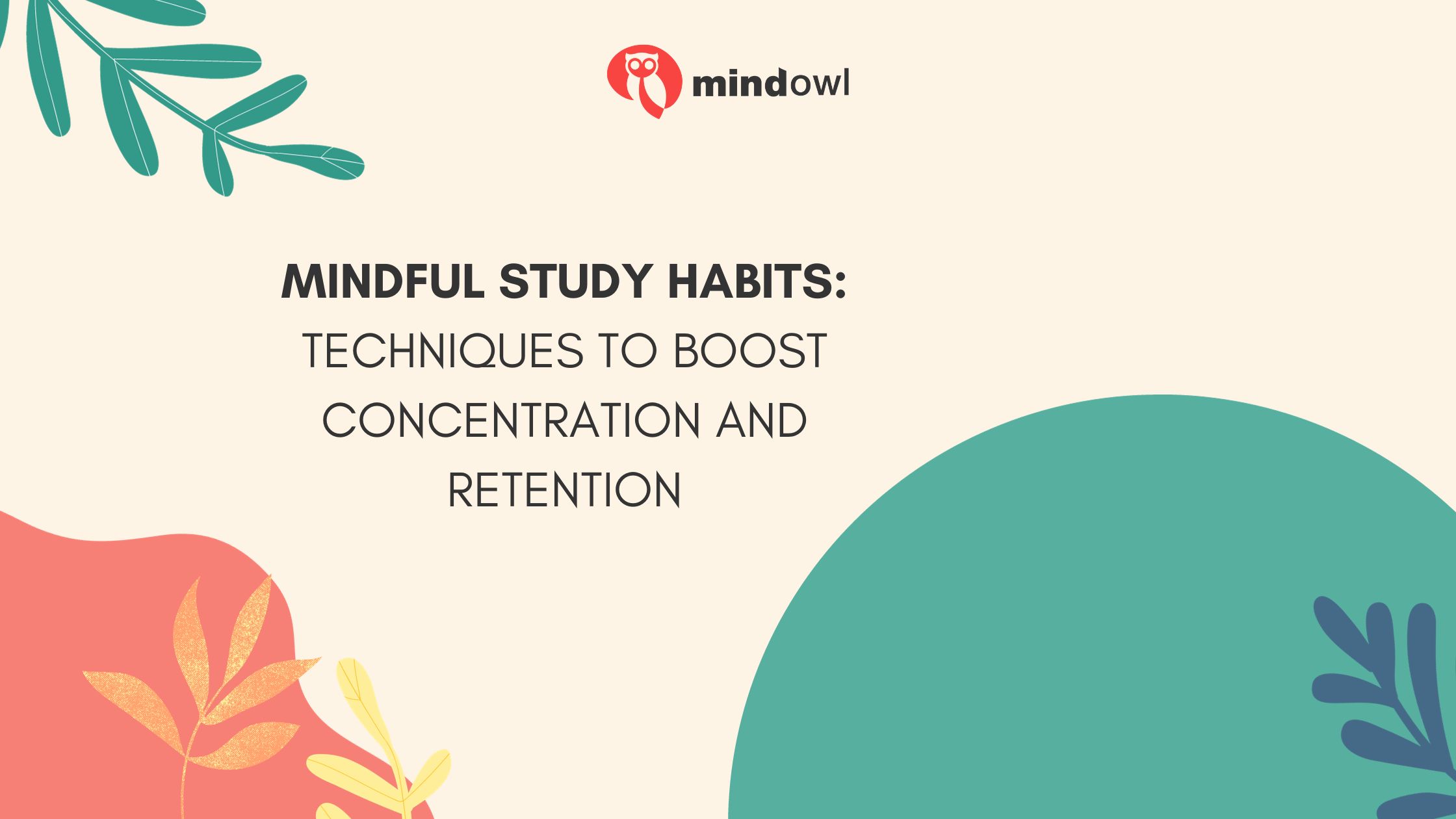Introduction
To study well, you need to do more than just open a textbook. It needs a careful plan that includes being mindful, making goals, and managing time. In this article, we’ll talk about different ways to build mindful study habits, improve your ability to focus, and help you remember important information.
Understanding Mindful Study Habits
When you study with mindfulness, you are fully present and involved in what you are doing. It means putting all your attention on a subject without any other things going on. This helps you learn more.
Research has shown that adopting mindfulness can help with things like paying attention, remembering things, and solving problems. When you study, it’s easier to remember and remember what you’ve learned if you pay attention.
Dealing with Study Burnout
Recognizing burnout signs
Be aware of the signs of study burnout, such as fatigue, lack of motivation, and declining performance. Address these symptoms promptly to avoid prolonged burnout.
Strategies for recovery
If you experience burnout, take a break, seek support, and engage in activities that rejuvenate your mind and body. In certain circumstances, seeking aid can be a choice that is both intelligent and sensible. To help students in this regard, there are companies that write essays for students. Papersowl offers college essay services https://papersowl.com/write-my-college-essay that can provide valuable support, allowing students to strike a balance between their academic and personal responsibilities, ultimately contributing to a more successful college experience. Alongside academic assistance, students can use AI-designed presentations, wherein they can create captivating slides in seconds. By typing their ideas in a few words, they can watch as a presentation fills with their topic, outline, and content.
Mindful study habits are important, but so is knowing when you need extra help if you’re a college student.
Creating the Right Environment
The importance of a clutter-free workspace
A clutter-free workspace promotes a clutter-free mind. Organize your study area to minimize distractions and create a conducive learning environment.
Lighting and its impact on focus
Proper lighting can significantly affect your ability to concentrate. Natural light is ideal, but if that’s not possible, invest in good-quality lighting to reduce eye strain.
Setting Clear Goals
Setting clear and achievable goals helps you stay focused and motivated. Identify what you want to accomplish during each study session.
Goal-oriented learning gives your studies purpose and direction, making it easier to track your progress and stay on track.
Time Management Techniques
The Pomodoro Technique
The Pomodoro Technique involves working in short, focused bursts (typically 25 minutes) followed by a short break. This method can help maintain your concentration and prevent burnout.
Blocking distractions during study time
Use apps or browser add-ons to stop websites and notifications that might get in the way of your studying. This will help you stay focused and use your time well.
Effective Note-taking Strategies
Cornell method: A proven note-taking approach
The Cornell method involves dividing your notes into sections, making it easier to review and revise. It encourages active engagement with the material.
Mind mapping for visual learners
Mind mapping is a visual technique that helps you organize and connect ideas, making it an excellent tool for visual learners.
Active Engagement in Learning
Active recall involves testing yourself on the material you’ve studied. This process strengthens memory retention and comprehension.
Teaching the subject using an interactive presentation to someone else or talking about it in a group can also help you learn and understand it better.
Healthy Lifestyle Choices
The role of nutrition and hydration
A well-balanced meal and enough water can help your brain work better and keep your energy up while you study.
The importance of adequate sleep
Quality sleep is essential for memory consolidation. Aim for seven to nine hours of sleep each night to optimize your learning potential.
Mindfulness Meditation and Breathing Exercises
Mindful meditation for improved focus
Mindful meditation techniques can help you focus better and feel less stressed, which can help you study with a calm and clear mind.
Breathing exercises to reduce stress
Simple breathing exercises can alleviate anxiety and tension, enabling you to study with a clear and relaxed mind.
Utilizing Technology Wisely
Productivity apps for studying
Explore productivity apps designed to help you stay organized and manage your time efficiently.
Avoiding technology pitfalls
While technology can be a valuable tool, it can also be a source of distraction. Learn how to strike a balance between using technology for learning and avoiding digital distractions.
Rewarding Yourself
Reward yourself for achieving your study goals. Small rewards can motivate you to stay on track and maintain a positive attitude toward learning.
Establish a system of rewards that align with your study objectives. This will give you an extra incentive to reach your goals.
Mindful Study Groups
Studying with peers can offer a fresh perspective and boost motivation. It also provides an opportunity to discuss and clarify concepts. Learn how to make the most of group study sessions by setting clear objectives, staying focused, and sharing knowledge effectively.
Periodic Revision Techniques
Periodic revision, using the spaced repetition method, reinforces your memory over time. It’s a powerful tool for long-term retention.Regular self-testing helps solidify your knowledge and identify areas that require further review.
Conclusion
Adopting mindful study habits is the key to enhancing concentration and retention. You can make a big difference in how well you study by making the right environment, having clear goals, managing your time well, and doing active learning. Remember that living a healthy life, practicing calm, and using technology in a smart way are all important for your academic success.
MindOwl Founder – My own struggles in life have led me to this path of understanding the human condition. I graduated with a bachelor’s degree in philosophy before completing a master’s degree in psychology at Regent’s University London. I then completed a postgraduate diploma in philosophical counselling before being trained in ACT (Acceptance and commitment therapy).
I’ve spent the last eight years studying the encounter of meditative practices with modern psychology.


